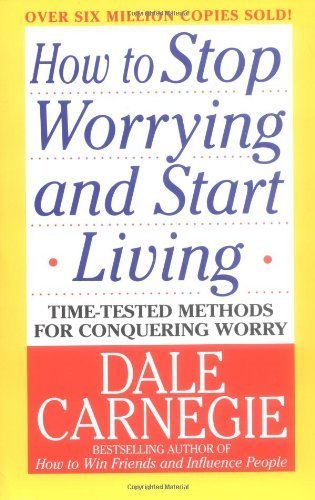
Quantum Psychology: Unlocking True Healing Beyond the Boundaries of the Mind

Quantum Psychology, A Pathway Beyond The Mind
As a practitioner of quantum psychology, I often explain the limitations of traditional psychology. Traditional psychology, though effective within its scope, primarily investigates the mind from a narrow, mechanistic perspective. It attempts to understand thought, behavior, and emotion by focusing exclusively on the internal workings of the mind. However, quantum psychology expands this approach by recognizing that while the mind is powerful, it is not the ultimate source of healing. To truly address and heal the human experience, we must look beyond the mind to the forces that regulate the universe itself. In this article, I will explore the core principles of quantum psychology, contrast it with traditional approaches, and demonstrate why this expanded perspective is crucial for achieving genuine healing.
What Is Quantum Psychology?
Quantum psychology is an evolving approach that merges principles from psychology, quantum physics, and consciousness studies. It emphasizes the idea that reality is not fixed but rather shaped by our perceptions and beliefs. Borrowing insights from quantum physics, where particles exist in multiple states until observed, quantum psychology proposes that our consciousness plays a pivotal role in shaping our experience of reality.
In traditional psychology, the mind is often viewed as the primary focus of study, with all issues traced back to mental constructs, early life experiences, or internal conflicts. This perspective provides important and valuable insights, yet it often remains confined within the boundaries of the mind’s own workings. Quantum psychology, in contrast, is interested in the observer, the consciousness behind the mind. It asks us to consider that we are not merely a product of our thoughts and conditioning, but that we have the power to shape our reality by becoming aware of the mental framework we operate within (conscious / subconscious), and changing it.
The Limitations of Traditional Psychology
Traditional psychology has made significant progress in helping individuals understand themselves and overcome mental health challenges. Cognitive Behavioral Therapy (CBT), psychoanalysis, and other modalities have brought about profound changes in people’s lives by addressing thought patterns, unconscious motivations, and emotional traumas. However, these approaches often view the mind as the sole source of healing, suggesting that by analyzing and understanding thought patterns, a person can fully heal. In one sense, it is true that “the All is Mind”, a concept suggesting that everything originates from the mind, but traditional psychology often interprets this in a limited way, focusing solely on mental processes without considering broader influences.
The issue with this narrow view is that it limits the exploration to what is already within the mind, its traumas, memories, and learned behaviors. This perspective often disregards the interconnected nature of existence and the possibility that influences beyond the mind play a crucial role in our well-being. As a result, traditional psychology can become a self-reinforcing loop, providing understanding without necessarily leading to true liberation.
The Quantum Perspective: Going Beyond the Mind
To go beyond the mind is to acknowledge that the mind is a tool rather than the source. Just as quantum physics has expanded the boundaries of classical physics by exploring the underlying principles that govern particles and energy, quantum psychology seeks to transcend the traditional confines of the mind. It invites us to explore consciousness, the source that connects us with everything else.
Consider the analogy of science. Traditional science examines the manifestations of phenomena, the “what” and the “how.” For instance, classical mechanics explains how objects move. Quantum physics, however, looks into the “why” on a deeper level by exploring the behavior of particles and the non-local effects that challenge classical notions of space and time. Similarly, while traditional psychology explains the manifestations of human behavior, quantum psychology seeks to understand the source of all behavior, the very essence of consciousness.
Understanding the Source: Consciousness and the Universe
One of the key principles of quantum psychology is the understanding that consciousness is interconnected with the fabric of the universe. It views consciousness not as an isolated phenomenon limited to the individual but as a field that is inherently part of a larger universal whole. This is akin to quantum entanglement, where particles remain connected regardless of distance, influencing each other’s behavior instantaneously.
In practical terms, this means that the thoughts, emotions, and intentions we hold are not isolated occurrences confined to our brains. They have an impact on the broader field of reality. This idea aligns with the findings of quantum mechanics, where the observer effect shows that the act of observation itself changes the outcome of an experiment. In the same way, our thoughts and consciousness can influence the reality we experience.
For instance, a person who holds a belief of being unworthy is not just experiencing a mental state. This belief sends a signal to the universal consciousness, affecting how that person perceives opportunities, relationships, and even their health. By shifting this belief, by going beyond the conditioned mind and tapping into the creative consciousness, a person can fundamentally alter their experience of life. This process of transformation is what quantum psychology aims to facilitate.
Practical Application of Quantum Psychology: An Expanded Healing Approach
To make these concepts more tangible, let’s consider a common issue: anxiety. Traditional psychology might treat anxiety by looking at past experiences that have contributed to anxious thought patterns or by teaching coping mechanisms to manage these feelings. Quantum psychology, however, would rather suggest that anxiety is a manifestation of a deeper disconnection from the true self. By addressing the underlying beliefs and aligning with the consciousness that exists beyond fear, the creative force that is naturally peaceful and abundant, anxiety can dissolve at its source.
A simple exercise in quantum psychology is intentional mindfulness. While traditional mindfulness focuses on observing thoughts without judgment, quantum mindfulness includes recognizing thoughts as temporary constructs that do not define one’s true self. In doing so, one begins to identify more with the observer, the consciousness behind the thoughts, and less with the transient mental activity, often referred to as ‘chatter’ or ‘noise.’
Another application is the use of affirmations, not as a mere repetition of words but as a way to consciously direct the mind toward alignment with universal truth. When someone repeats, “I am whole, I am connected to the source of all,” they are not just replacing a negative thought with a positive one; they are intentionally attuning their consciousness to a state that transcends the limitations of the mind.
Healing at the Source: A New Paradigm for Wellness
The idea that the true source of healing lies beyond the mind has profound implications. It suggests that by aligning with the consciousness that regulates the universe, the same consciousness that orchestrates the growth of a tree or the movement of planets, we can experience a form of healing that is not bound by the limits of the mind’s conditioned responses.
This perspective can be empowering because it shifts the focus from trying to fix the mind to aligning with something greater. Healing becomes less about solving problems and more about letting go of the identification with those problems. It’s about recognizing that we are not our thoughts, not our past traumas, and not our conditioned behaviors, but rather, we are the consciousness that has the power to change all of these…
Examples and Real-Life Applications
To illustrate, consider someone struggling with low self-esteem. Traditional psychology might explore the origins of these feelings, perhaps stemming from childhood criticism or negative experiences, and work on reframing these memories. Quantum psychology, on the other hand, would encourage the client to recognize that the feeling of unworthiness is a construct of the mind, and not an ultimate truth. By shifting awareness to the observer and recognizing their inherent connection with the creative consciousness of the universe, the patients can begin to see themselves as worthy, not because they have reprogrammed a memory, but because worthiness is a fundamental aspect of their true nature.
Another example is physical healing. Psychosomatic medicine recognizes that the mind can influence the body, but quantum psychology takes it a step further by suggesting that the body is an extension of consciousness. Thus, healing physical ailments involves not only addressing psychological factors but also connecting with the deeper consciousness that sustains life. This approach can be seen in practices like energy healing, where the intention is to align the energy of the body with the universal field to promote healing.
Expanding the Scope of Psychology
Quantum psychology is not about dismissing traditional psychology; rather, it’s about expanding the scope to include the forces that lie beyond the mind. Just as quantum physics has expanded our understanding of the universe, quantum psychology expands our understanding of the self and our capacity for healing. It recognizes that we are not merely minds navigating a physical world but are conscious beings connected to a vast, intelligent universe.
By looking beyond the mind and connecting with the source of all things, we open up new possibilities for healing and transformation. We move from merely understanding the manifestations of our experience to recognizing and aligning with the creative force that underlies all existence. This is the path to true freedom, a journey beyond the limitations of the conditioned mind into the boundless potential of consciousness itself.
For those seeking to move beyond coping and truly transform their lives, quantum psychology offers a pathway that is as deep as it is liberating. It is an invitation to explore the very core of our being and to understand that the source of all healing lies within our connection to the universe, the very consciousness that we all share.
If you’re ready to explore the deeper layers of your consciousness and move beyond the limitations of traditional psychology, consider taking the first step with quantum psychology. By shifting your awareness and connecting with the true source of healing, you can transform your experience of life. Whether you’re seeking personal growth, emotional liberation, or a new understanding of yourself, quantum psychology offers a powerful pathway forward.
For those interested in learning more or experiencing this transformative approach firsthand, I invite you to reach out and schedule a session. Together, we can uncover the infinite potential that lies beyond the chatter of the mind and begin a journey toward true healing and fulfillment. Contact me today to start your journey.
DISCLAIMER :
Quantum Psychology is not regulated in the same way that traditional psychology or psychiatry is. It is a relatively new and evolving approach that combines elements of psychology, quantum physics concepts, and spirituality. Because it often deals with subjective experiences and personal growth rather than evidence-based psychological interventions, it is generally not recognized or overseen by formal psychological or medical regulatory bodies. Practitioners of Quantum Psychology typically do not need to adhere to the same licensing requirements as licensed clinical psychologists or psychiatrists. However, clients should always do their due diligence when choosing a practitioner, ensuring they have appropriate experience and qualifications in the field of coaching or therapy.
Coach G, Dubai's Life Coach, combines ancient wisdom and quantum psychology to help you unlock your true potential and live your most empowered life.
From Our Blog
Share:
Leave A Reply Cancel reply
Categories
- A Course in Miracles - Weekly Study Guide 1
- Ancient Knowledge 7
- Book Summaries 20
- Business 4
- Coach G's Journal 36
- Conscious children 1
- Conscious motherhood 4
- Conscious Pregnancy 2
- Conscious Women 15
- Education 6
- Gloria's Journal 2
- Life Coaching 41
- Marriage and Relationships 8
- Productivity 7
- Quantum psychology 49
- Self-Improvement 68
- Spirituality 40
- Uncategorized 1
- Video Blog 2
Tags
Popular Posts
10 Effective Techniques to Cultivate Love and Kindness Daily
Mastering the Subconscious: Take Control or Be Controlled
Our Life Coaching Philosophy is built on the premise that every individual has infinite potential waiting to be unlocked.
Useful Links
Quick Menu
Contact Us
- +971585541780
- info@coach-g.com
- Al Murjan tower, Al Marsa Street Dubai Marina













Comments